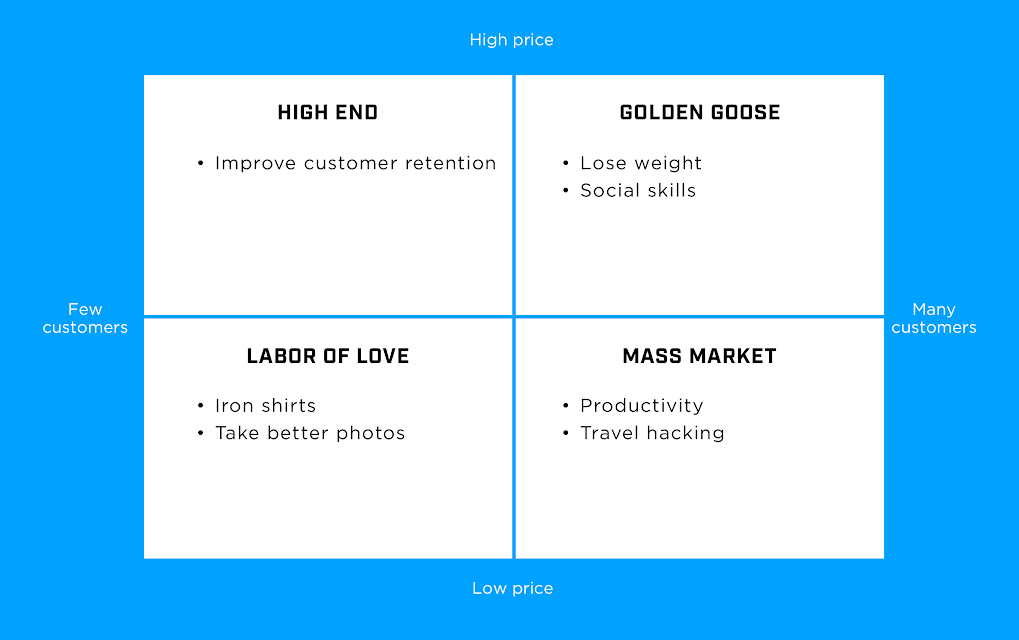Wondering what the business venture definition is and how important it is? A business venture is a new business, startup, or small company that has recently been formed to engage in a commercial activity involving risk and the potential for a return.
In other words, forming a new business venture occurs when a person or group of people come together to start a business to sell products and services for a profit. A new business venture may be incorporated from the start or may even begin without a formal business structure.

A new business venture may be incorporated from the start or may even begin without a formal business structure. As the company generates revenue and becomes profitable, its operations will become more complex, and others may invest in it and expand into new areas.
Entrepreneurs and individuals with a higher tolerance for uncertainty and risk engage in business ventures. They think and dream big, have excellent communication skills, are extremely passionate, and are problem solvers. Let’s look at what the business venture definition means in detail in this article.
Business venture definition
What is the business venture definition? According to the Cambridge Dictionary, a business venture is a new business or activity involving risk. As you can comprehend from this definition, “business venture” broadly means.
A “business venture” is defined as any “new business” or “business activity” that involves “risk.” This can refer to any business the entrepreneur, business founder, or owner is willing to risk in exchange for a return on investment.
A business venture is also defined as a business enterprise or speculation in which something is risked in the hope of profit. This broad definition refers to someone taking a risk hoping to make money.
Characteristics of a Business Venture
Now that you know the definition of a business venture, you must know its characteristics. Here are some of the significant characteristics of business ventures:
- It is a for-profit business.
- It is typically founded on a good idea or business plan.
- One or more partners might be there.
- They provide goods and services to meet market needs or solve problems.
- It could be in any industry or market segment.
- To begin a new business venture, entrepreneurs will typically incorporate a company.
Entrepreneurs and individuals who start businesses exhibit certain characteristics that are noteworthy. In most cases, the people involved in a business venture:
- Have an entrepreneurial spirit.
- Work hard and outside of the 9 to 5 hours.
- They are charismatic enough to sell their idea to others.
- They are excellent negotiators who raise capital.
- Think big and dream big.
- They are innovative and find novel solutions to problems.

Example of a Business Venture
To better comprehend the concept, consider a few examples of business ventures. A business venture is a newly formed company or business operation in which the founder (or founders) intends to sell goods and services for profit. A business venture is a business operation run by one or more entrepreneurs. Here are some examples of various business ventures:
- Chatbot development firm
Chatbots are here to stay, and businesses of all sizes incorporate them into their marketing, sales, and customer service teams. These bots enable businesses to reduce expenses while increasing revenue. Many are unaware that building a chatbot isn’t as difficult as it was.
You can now create an enterprise-grade chatbot powered by artificial intelligence (AI) and natural language processing (NLP) in minutes with no coding or programming knowledge, thanks to platforms like Chattypeople.
With the preceding in mind, establishing a chatbot-building agency is simpler than ever. You could sign up for a free Chattypeople account and offer your services to businesses of all sizes. The best characteristic is upgrading your account and raising your prices as your business grows.
- Consignment store online
You can begin your own online business if you have a camera, a computer, and a strong interest in fashion. Begin by gathering all the old clothes you’ve accumulated over the years and no longer wear and taking professional photographs of them.
You could trade your items on eBay or set up your store on Shopify or WordPress. The earning possibility for this type of business venture is limitless, and the best part is that you don’t need to restrict yourself to clothes. You could also sell vintage furniture, children’s accessories, gardening equipment, and other items.
- Instagram advisor
Instagram, along with Facebook and Twitter, is among the most popular social media platforms. Many businesses now opt for a visual social media presence, which means they devote more time to social networking such as Instagram and Pinterest rather than being social on Facebook and Twitter.
On the other hand, creating an Instagram following isn’t as simple as it appears, and if you’re a business, you’ll want to grow your following quickly. This is why these companies hire Instagram consultants to handle everything. With that in mind, if you enjoy Instagram, have a smartphone, a large following, and can do some basic marketing, you could easily become an Instagram consultant without making a significant financial investment.
- Services for copywriting and editing
Formal education is not required to work as a copywriter or editor. You don’t need anything other than a computer. You must be motivated, persistent, and have a solid support system to get higher-paying clients.
If you can persuade your current clients to write testimonials highlighting your abilities, you’ll almost certainly see an increase in new customers. Once you’ve established a client base, you’ll notice that they frequently require new content, and you’ll be able to charge more.
- Blogging or video blogging
Why not teach others if you have a specific skill set or are an expert in a particular industry? Blogging is a perfect way to share information with others. While you might not see how you can make money by giving people free advice, the possibilities are limitless. You must first increase your visitor count and build a loyal following. After that, you can sell advertising space to businesses and participate in programs such as Google AdSense.
In complement to the options above, you can create e-books or print copies and sell them on your blog or through platforms such as Amazon. Furthermore, if writing isn’t your thing, don’t worry. You can achieve all of them via video rather than in written format. You only need a computer, a webcam or camera, and a website.
- Life and business coach
If you’re an introvert, you’re probably quieter, calmer, and tend to think before you speak or act. If this is the point, you should consider pursuing a consulting career. Your ability to internalize events and listen indicates that you possess the necessary skills to become a business or life coach.
While it is not mandated by law to complete life coach training, you can do so if you want to show clients your certification. If you choose not to take the course, the costs of being a life coach are minimal, and you can conduct consultations over the phone or online.
- Graphics Designer
The freelance graphic composition can be a great way to make a living if you’re creative, have a computer, and know how to use design software. As the number of digital businesses grows, so does the demand for logos, website design, and other marketing materials.
If you have a creative flair but lack experience with design software, you can enroll in a short online course, which is usually quite inexpensive, or teach yourself. Many graphic designers are self-taught; you only need time and patience.
- Advisor for college applications
College application advisors, like life or business coaches, excel at providing one-on-one advice tailored to each client. You could deliver your services as a college application advisor if you believe you can provide thoughtful guidance, have strong administrative skills, and want to help young adults take the next steps in their careers. All you need is a computer, a passion for research, and knowledge of the educational system.
- Tutoring
Tutoring is a job that can be done entirely online. You only need a computer, a website to market yourself, and specific skills to offer people. You could teach students via Skype or phone if you’re a math whiz, speak another language, or have a college degree. Aside from being free to begin, you can charge up to $100 per hour, depending on the student’s needs.
- Photographer
Photography is something that many people consider to be a hobby, but it can also be a lucrative career option. If you already own a camera and your friends frequently ask you to photograph their events, you may have what it takes to turn your hobby into a career.
Create a website and upload a portfolio of your best photography, as well as your contact information, to get started. If you desire to take it a step further, hire someone to help you with your marketing – shoppers will be lining up outside your door to pay for your services.
Some of the other examples of the business venture are Home inspection companies, Moving companies, Digital design firms, Freelance writing agencies, Website development firms, Gyms, Mobile app development companies, Car detailing shops, Real estate development, Investment advising company, E-commerce consulting firm, and Vending machine business.
Also Read: 6 Best Tips For Starting a business for Dummies
Startup vs. Business Venture
What’s the distinction between a business venture and a startup? Business ventures and startups have similar meanings in that they involve a person or a group of people engaging in commercial activity to make money. However, the main distinction between a business venture and a startup is how much and how quickly the business is expected to grow over time.
Startups are business operations expected to grow quickly, penetrate specific markets, and generate significant returns. A business venture, on the other hand, is a type of business that can grow at any rate, not necessarily as quickly as a startup.
Another significant distinction between startups and business ventures is how they are funded. Startups will generally rely on investment from various investors, such as angel investors, venture capitalists, and other sophisticated investors willing to take on more risk in exchange for potentially much higher returns.
A small or “normal” business venture may not require VC funding or significant equity investors but may rely on small business loans or other traditional forms of debt financing.
How to Discover a Profitable Business Opportunity?
A good business begins with a great idea. Unfortunately, there is a lot of confusion about what constitutes a good business idea. Here’s some advice: Ignore the noise and concentrate on yourself. Don’t be concerned with what other people are doing or the latest get-rich-quick scheme. Instead, concentrate on locating the sweet spot between your passion and your interest in helping people.
Ask yourself three questions.
Here are three inquiries to help you figure out what you might be passionate about:
- “What abilities do I possess?”
- “How do I spend my Saturday mornings?”
- “What difficulties have I overcome?”
This is psychologically significant. If you’re enthusiastic about your business, you’ll be able to profit from your knowledge and expertise. That makes it all the easier to stick with it and make a decent profit. Let’s take a closer look at each question and see how we can get the best answers.
Question 1: “What abilities do I possess?”
These are skills you’ve learned and honed over the years, such as:
- College diplomas
- Languages (e.g., Spanish, French, American Sign Language)
- Fitness (e.g., yoga, weightlifting, CrossFit) (e.g., yoga, weightlifting, CrossFit)
- Instruments (e.g., guitar, piano, singing)
- Skills training (e.g., improv, writing, dance)
- Mechanical / trade abilities (e.g., plumbing, woodwork, car repair)
If you learned about it in school, in an online course, or in a class at your local community center, chances are there are plenty of people who would pay you to teach it to them as well.
It’s a common misconception that to teach a skill, you must be the best at it — but this is not true. Some of the world’s greatest teachers were not always the best at their jobs.
Many people have turned their passions into thriving businesses and aren’t always the best. That means you can as well.
Question 2: “What do I do on Saturday mornings?”
This may appear to be an odd question at first. Nevertheless, if you look a little deeper, you’ll discover that it reveals what you’re passionate about. Saturday mornings are traditionally reserved for “me time.” Perhaps you are:
Building a family tree by researching your genealogy and ancestry. This is something that many people struggle with and would gladly pay you for.
Lifting weights for both strength and size. This is the ultimate fitness goal for millions of men worldwide, and they’d pay you to teach them how.
Painting or completing an art project Many unartistic and aspiring Rembrandts would pay you handsomely for this impressive skill.
When the world is still sleeping and you have the entire day ahead of you, you’re likely to work on something you’re passionate about. So consider: What do you enjoy doing in your spare time?
Question 3: “What difficulties have I overcome?”
Even in life’s most difficult moments, we can find opportunities. These are the struggles and issues that we face and can assist others with. You can assist those people, and they will even pay you for it.
Make better decisions by using the Demand Matrix.
Once you’ve determined your answers, apply them to the Demand Matrix.
This is how it appears:

The Demand Matrix is a tried-and-true method for finding something profitable and enjoyable. And it’s simple; your business ideas are divided into four categories:
High-end: These are profitable ideas, but they are unlikely to generate many customers. This category includes any luxury brand you can think of (e.g., Rolls-Royce, Gucci, Prada). You’ll be competent to charge a higher price because you’ll have less competition. You will, however, have difficulty finding customers.
Mass market: Because your business appeals to a wide range of people, these are the areas where you will find many customers. You will not be capable of charging premium prices for your offerings. Consider jobs like Uber driving or books like The 4-Hour Workweek. There are a lot of individuals who like those things, but you’re not going to charge much for them.
Labor of love: Business ventures with few customers and a low-profit margin. These are the worst business ideas, but you might be very excited about them. That’s why they’re considered laborers of love.
The Golden Goose: This is the ideal point. These concepts will command a premium price, and there will be no shortage of people willing to pay for them. Consider Apple’s iPhone or the P90X workout program.
To figure out where your business idea should go, ask yourself two questions:
“Does anyone care about this?” If you answered yes, you have a lot of customers!
“Would people be willing to pay a premium to solve this problem?” If so, you can charge a premium for it!
Here’s what your Demand Matrix could look like:

Do not overthink it. The Demand Matrix isn’t an exact science, but it’s a good place to start when looking for a business idea.
Summarizing business venture definition
- A business venture is a new or startup enterprise formed to sell goods and services for a profit.
- Businesses can operate in any industry and sell any product or service.
- Individuals may often enter into business ventures to meet a market need or demand.
- Entrepreneurs with the time and resources to develop a new product or cater to the needs of a specific market are typically those who start a business venture.
- A business venture expected to raise capital and grow quickly is referred to as a startup.
Takeaway
So there you have it!
In layman’s terms, what is a business venture definition? A business venture is a new company or startup formed to sell products or services profitably. When you embark on a business venture, your primary goal is establishing, growing, and running a profitable enterprise. A small-scale business venture may be appropriate for some, whereas others may seek to enter large global markets. A business must not be sophisticated, large, or involve many people.
When the idea is to start a business operation to supply goods or services to fill a market need and generate profits, even one person can get into a business venture. A new small business is frequently launched to fill a market gap, solve a problem, provide entertainment, or serve a specific purpose. Small business ventures typically comprise the original business founder and one or two investors. Finally, anyone starting a new business wants to engage in a commercial enterprise, take risks, and generate profits.
We hope we can answer your questions about what business venture definition is and what it means in business.

